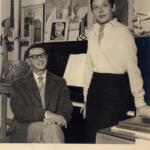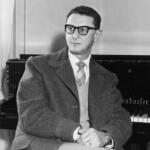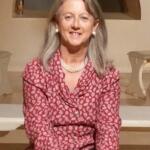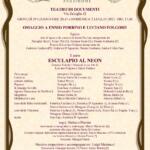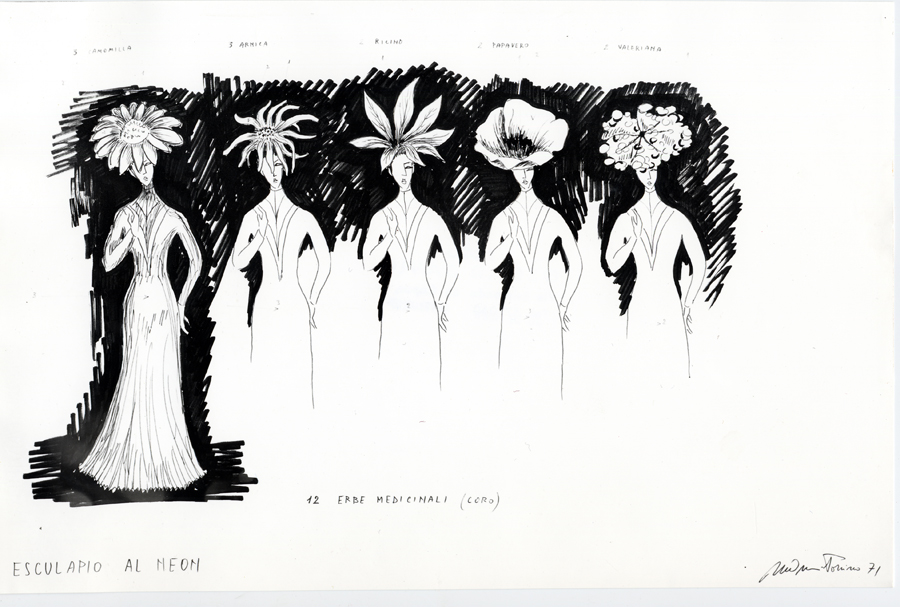 “Esculapio al neon” by Ennio Porrino is a play that brings together a father, a mother, and a daughter, three artists from different times and backgrounds, within the space of a theater, creating a cohesive whole. On Sunday, July 2, 2023, at the Teatro dei Documenti in Frosinone, Italy, director Stefania Porrino brings to life the 1958 opera composed by her father, Ennio Porrino, a composer of symphonic, chamber, and operatic music, in collaboration with librettist Luciano Folgore. The director’s mother, Màlgari Onnis, was the set designer and costume designer for the original production in 1972.
“Esculapio al neon” by Ennio Porrino is a play that brings together a father, a mother, and a daughter, three artists from different times and backgrounds, within the space of a theater, creating a cohesive whole. On Sunday, July 2, 2023, at the Teatro dei Documenti in Frosinone, Italy, director Stefania Porrino brings to life the 1958 opera composed by her father, Ennio Porrino, a composer of symphonic, chamber, and operatic music, in collaboration with librettist Luciano Folgore. The director’s mother, Màlgari Onnis, was the set designer and costume designer for the original production in 1972.
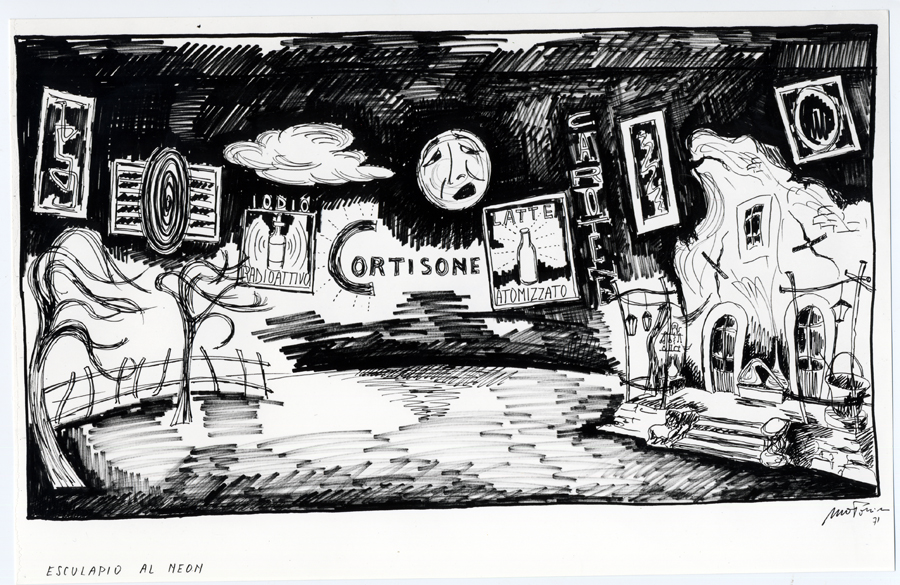 The original costumes, now owned by the director and restored for the occasion by Valeria Maruzzi and Alessia Pisani, students of the Costume Design Course taught by Professor Carla Ceravolo at the Academy of Fine Arts in Frosinone, will grace the stage—a priceless gift for the audience. On stage, there will be students from the Conservatorio di musica “Licinio Refice” in Frosinone, where the director teaches. The musical preparation for the opera has been curated by Maestro Luigi Mastracci, who accompanies the performers on the piano.
The original costumes, now owned by the director and restored for the occasion by Valeria Maruzzi and Alessia Pisani, students of the Costume Design Course taught by Professor Carla Ceravolo at the Academy of Fine Arts in Frosinone, will grace the stage—a priceless gift for the audience. On stage, there will be students from the Conservatorio di musica “Licinio Refice” in Frosinone, where the director teaches. The musical preparation for the opera has been curated by Maestro Luigi Mastracci, who accompanies the performers on the piano.
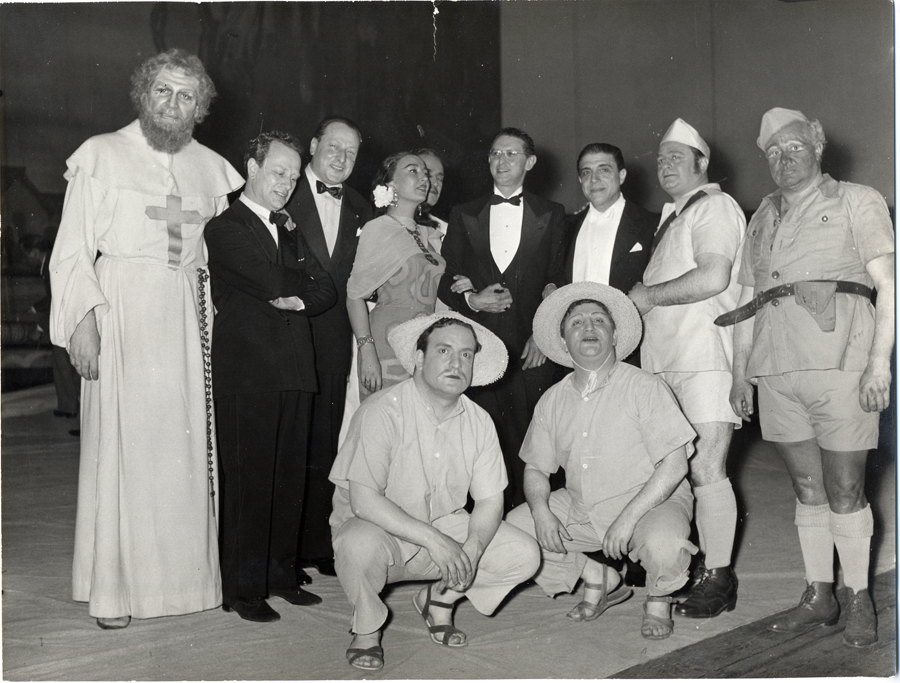 The staging will be a precious opportunity to learn about the history of a family of artists who have been and continue to be protagonists of the “Italian theater,” and their documentation can be consulted at the Onnis Porrino Archive of the SIAE Theater Museum Library.
The staging will be a precious opportunity to learn about the history of a family of artists who have been and continue to be protagonists of the “Italian theater,” and their documentation can be consulted at the Onnis Porrino Archive of the SIAE Theater Museum Library.
The theme of the play revolves around the contrast between old and new medicine, highlighting the benefits of herbal medicine, extolled by the sorceress Anfissa, and the resolving power of vitamins, hormones, and cortisone, praised by the lady of Advertising, also known as Grancassa for her loud entrance always accompanied by her faithful servant Megaphone.
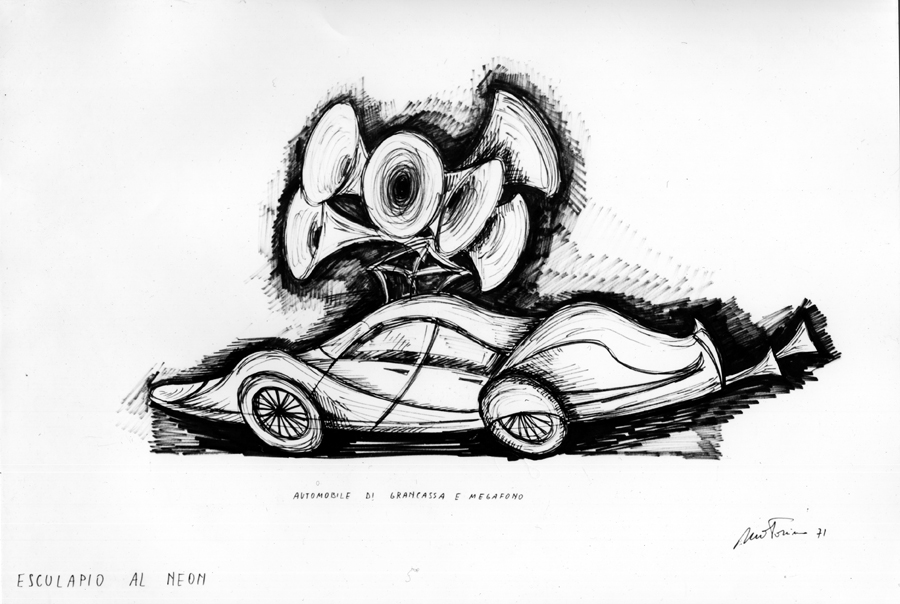 The object of contention is Cordelia, a romantic young girl, and the very sick prince Rovello. The two have fallen in love through correspondence and ardently desire to meet in person. However, Anfissa and her brother Papasso, Cordelia’s mother and uncle, are deeply concerned about the poor girl’s exhaustion. Instead of relying on the ancient remedies proposed by her mother and uncle, Cordelia prefers to confide her lovesick woes to Madama la Luna, who descends from the sky to console the unhappy girl.
The object of contention is Cordelia, a romantic young girl, and the very sick prince Rovello. The two have fallen in love through correspondence and ardently desire to meet in person. However, Anfissa and her brother Papasso, Cordelia’s mother and uncle, are deeply concerned about the poor girl’s exhaustion. Instead of relying on the ancient remedies proposed by her mother and uncle, Cordelia prefers to confide her lovesick woes to Madama la Luna, who descends from the sky to console the unhappy girl.
As an introduction to the opera, paying homage to the two authors of the music and libretto, a duet from another opera by Ennio Porrino, “L’organo di bambù,” two chamber lyrics by the same author, and a collage of Futurist-style poems by Luciano Folgore will also be performed.
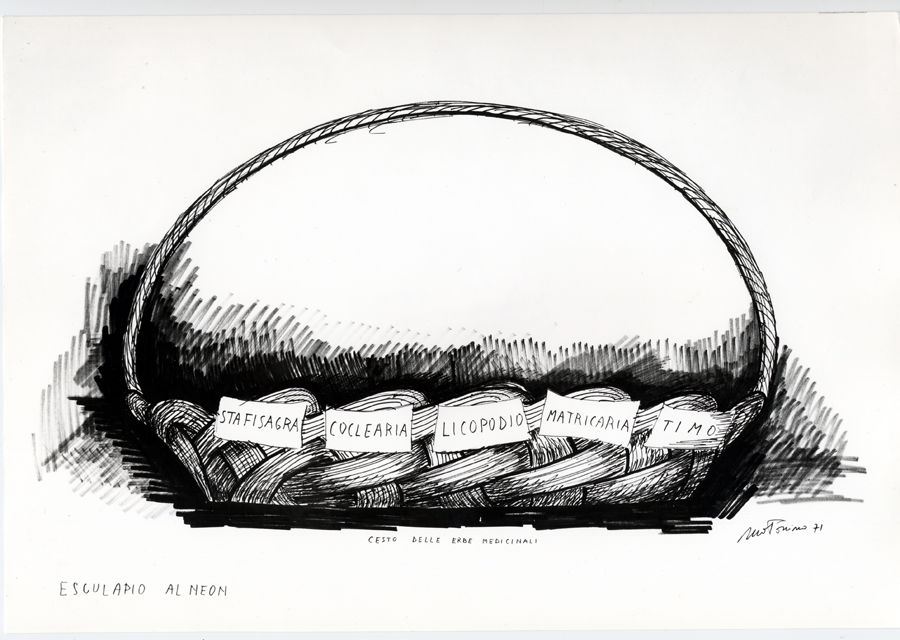 At the Teatro dei Documenti, on Monday, July 3, at 8:45 pm, and Tuesday, July 4, at 6:45 pm, students from the Singing Courses taught by professors Susanna Anselmi, Silvia Ranalli, and Danilo Serraiocco will also perform a repertoire opera, “La Bohème” by Giacomo Puccini, accompanied on the piano by Mirko Mancini, a student in the Biennial Collaborative Maestro course of Professor Luigi Pecchia. The direction is entrusted to Giuseppe Pestillo, a student in the Biennial Musical Theater Direction course taught by Professor Stefania Porrino at the Licinio Refice in Frosinone. This conservatory is one of only four in Italy to have established this new course of study, which did not exist in any state school before 2004.
At the Teatro dei Documenti, on Monday, July 3, at 8:45 pm, and Tuesday, July 4, at 6:45 pm, students from the Singing Courses taught by professors Susanna Anselmi, Silvia Ranalli, and Danilo Serraiocco will also perform a repertoire opera, “La Bohème” by Giacomo Puccini, accompanied on the piano by Mirko Mancini, a student in the Biennial Collaborative Maestro course of Professor Luigi Pecchia. The direction is entrusted to Giuseppe Pestillo, a student in the Biennial Musical Theater Direction course taught by Professor Stefania Porrino at the Licinio Refice in Frosinone. This conservatory is one of only four in Italy to have established this new course of study, which did not exist in any state school before 2004.
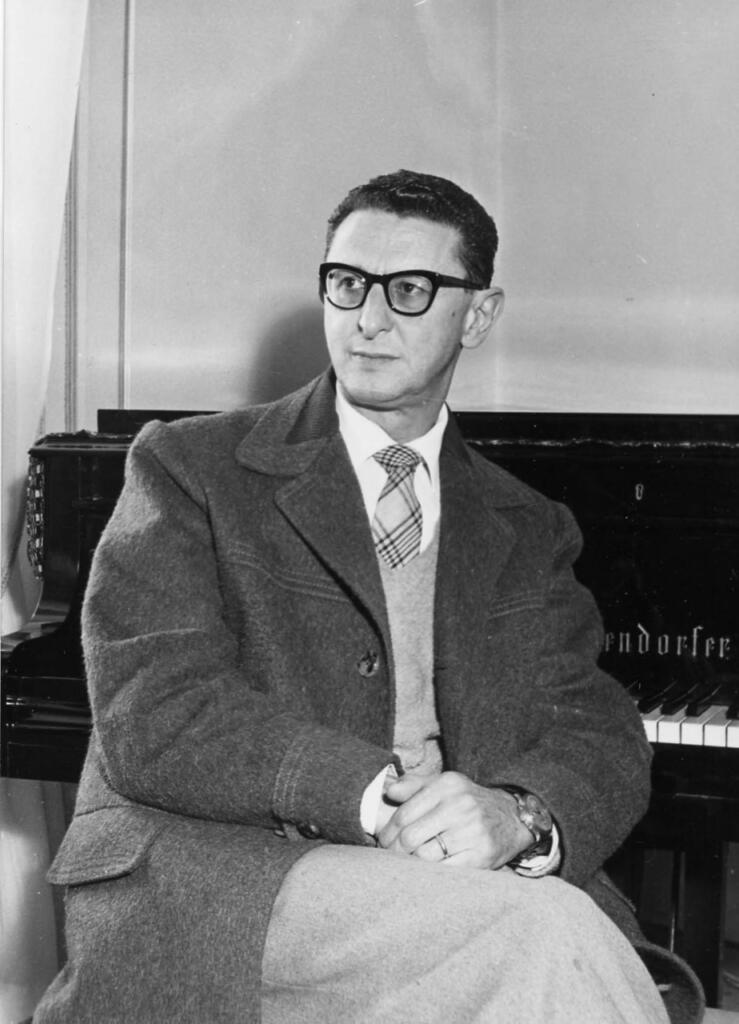
Ennio Porrino (Cagliari, January 20, 1910 – Rome, September 25, 1959) was a student of Mulè, Dobici, and Respighi. Porrino had an intense career as a composer, teacher, critic, and conductor. He became a member of the Accademia di Santa Cecilia at the age of twenty-nine and the Accademia Luigi Cherubini in Florence. After teaching composition in Naples and Rome, he was appointed director of the Conservatory and the Ente Lirico in Cagliari in 1956.
Porrino gained recognition in the Roman music scene in 1933 with the overture for orchestra “Tartarin de Tarascon” and in 1934 with the symphonic poem “Sardegna,” both conducted by Bernardino Molinari at the Auditorium dell’Augusteo. Over the years, “Sardegna” became his most performed and well-known composition, with numerous performances in Italy and abroad under the guidance of renowned conductors of the time, such as Stokowski, Previtali, Gui, La Rosa Parodi, and others.
The Rome Central – Italy in the world editorial staff consists of freelance editors, journalists, photographers, filmmakers, doctors, writers, video-makers, supporters, poets, writers, actors, singers and many friends.
RomeCentral is a Magazine completely no-profit , whoever writes in this magazine does his job without any commercial pressure.
NB: No people in Rome Central, from managers to employees etc .., receive any type of compensation.
The love for the free journalism repays all our efforts.


